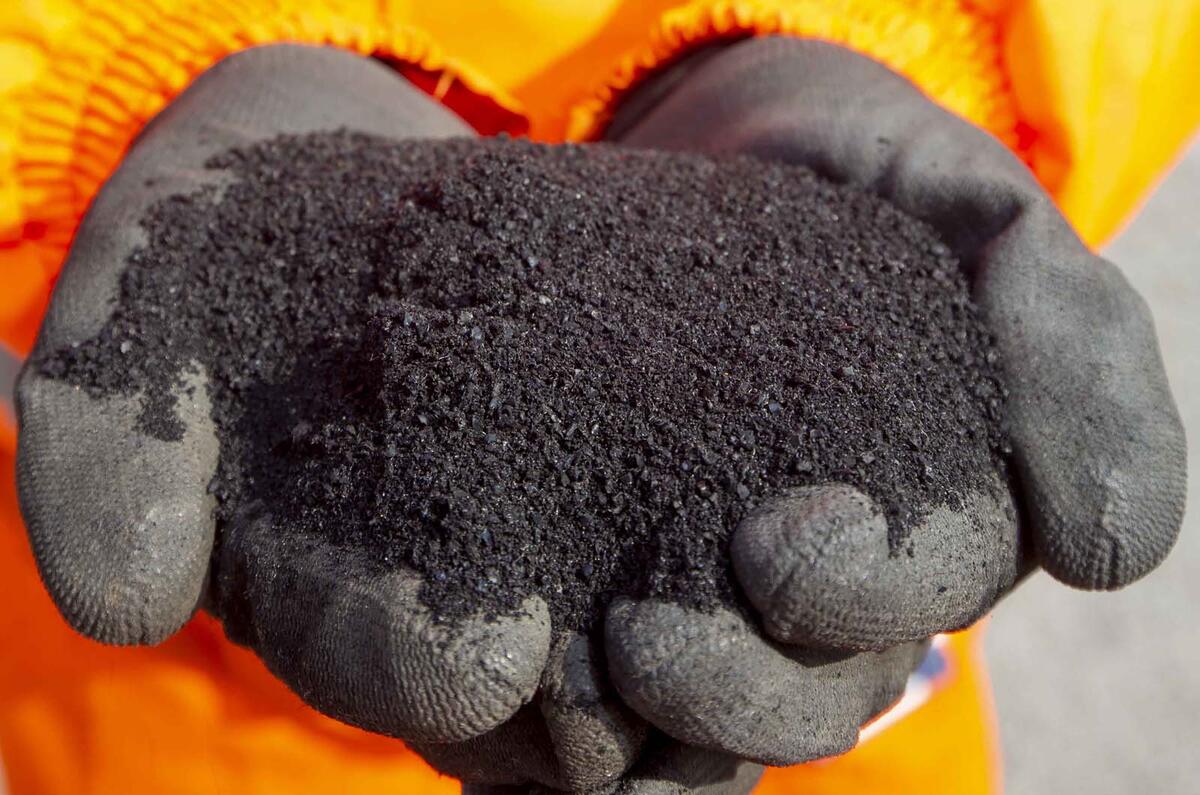A new rubberised asphalt being trialled by construction materials firm Tarmac could repurpose up to 800 used tyres per mile.
According to the company, the UK exports 120,000 tonnes of rubber waste each year. The newly developed road surfacing material could significantly reduce this figure.
The amount of granulated rubber used for each stretch of road would depend on the thickness required, Tarmac states, although the average ratio would be one tyre for each tonne of asphalt.
Trials have taken place already in Tarmac’s home city of Coventry, where two 200-metre stretches of public road were paved with the new material. A spokesperson for the council said it was “delighted” with the results and expressed a desire to use “more of the product across the city in the future”.
As well as the environmental benefits associated with using rubber in asphalt, Tarmac’s technical director, Brian Kent, told Autocar that the capacity of rubber to absorb movement will reduce the risk of roads cracking.
Although more sustainable than existing processes, rubberising asphalt has proven to be more expensive overall. The cost of securing, breaking down and mixing the rubber with the asphalt outweighs any saving made by using the waste material.
Tarmac currently recycles a claimed 8.7 million tonnes of waste from other industries each year, including using waste tyres to fuel cement kilns.
Rubberised asphalt is already used in the US, where it's estimated that 12 million tyres are recycled to surface roads annually.
Kent said: “In the UK, there's a lack of the necessary industrial infrastructure required to allow manufacture of this type of material.
“Against the backdrop of major investment in the strategic road network, there's now an opportunity to leverage this technology and unlock the benefits of this circular economic approach.”
Talks are underway between Tarmac and Highways England regarding the nature of subsequent trials.
Read more
Potholes: how much they cost the UK and how they are fixed








Join the debate
Add your comment
About time?
Yeah, what about time?!, like another poster said, it’s like a light switch effect ,noisy Road the quiet road, another remarked how much safer the surface was low spray when raining better braking too, why isn’t the Government sorting this?
Tarmac Troubles
There's quite a lot of "quiet" tarmac on the M4 between Swindon and Bristol and it's like someone hitting the "mute" button on the radio. Not only is it quieter but it kicks up a lot less spray too.
However, iirc, it's more expensive than "normal" tarmac and has a shorter life so it's a double whammy which, if true, could explain the reluctance to use it
@ Andy 1960
I understand that Andy, but thats putting a finite value on life and lives!
Rubberised Tarmac
I am amazed at the sloth of Highways Agancy.
They have been TALKING about this for decades now....for gods sake get on with it!
If the Infrastructure isnt there to manufacturer this...create it ....this year. This country used to drive railways through mountain ranges, build impossible engineering feats, now it sits on its hands procrastinating.
Our roads are a national disgrace. So many 'new' roads have been built with that god awful concrete ribbed surface...these are unbelievably noisy, blighting the lives of those who live near and creating lethal amounts of spray in the wet. There has been an alternative to this for 20 years, and on the very few stretches where they have tested this, the difference in noise, spray and reduced braking distance is very noticable. Still nothing gets done.
Its as if they are waiting for the tarmac version of the tooth fairy to coma along and magic it done!